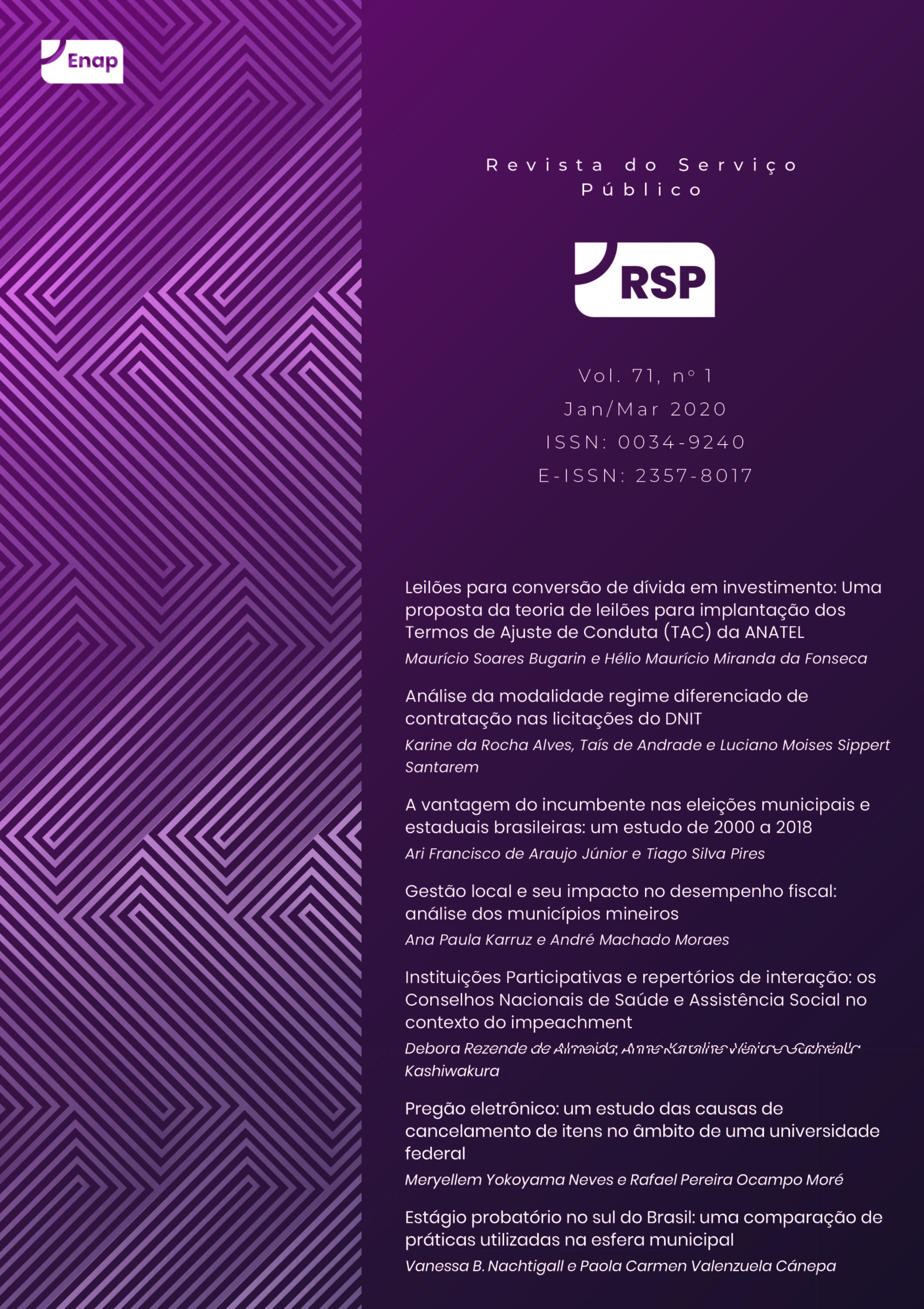Electronic auctions: a study of reasons about cancellation items in a federal university
Un estudio de las causas de la cancelación de artículos dentro de una universidad federal
DOI:
https://doi.org/10.21874/rsp.v71i1.3937Keywords:
purchases and bids, electronic trading, university administrationAbstract
The federal institutions of higher education (IFES), constituted in the forms of foundations or autarchies, for being part of the public administration, are obliged to follow the rules of the bidding. Thus, the Federal University of Santa Catarina (UFSC), because it is classified as a federal authority and subject to the norms specified in the Federal Constitution, must adopt the bidding as a means of effecting its purchases. This research proposes to analyze the cancellations of items of consumer material in electronic previews carried out within the scope of the Federal University of Santa Catarina, from 2014 to 2018. The research, in terms of purposes, is characterized as applied and descriptive, and for the field, documentary and bibliographical research were used. In this way, considering the information identified from the accomplishment of the objective, it is observed that the internal phase is of extreme importance for the success of the bid, since the main reasons for cancellation of items, identified in this study, are directly related to the specification of the object and price survey, which are directly related to the preparatory phase of the event. Improvement actions for the procurement and bidding processes were proposed, among them the need for greater awareness and qualification by the requesting employees regarding their assignments in the internal phase of the event.
Downloads
Downloads
Published
How to Cite
Issue
Section
License
Copyright (c) 2020 Revista do Serviço Público

This work is licensed under a Creative Commons Attribution-NonCommercial-ShareAlike 4.0 International License.
- A RSP adota a licença Creative Commons (CC) do tipo Atribuição – Uso Não-Comercial (BY-NC).
- A licença permite que outros remixem, adaptem e criem obra licenciada, sendo proibido o uso com fins comerciais.
- As novas obras devem fazer referência ao autor nos créditos e não podem ser usadas com fins comerciais, porém não precisam ser licenciadas sob os mesmos termos dessa licença.
- Ao publicar o artigo na RSP, o autor cede e transfere para a ENAP os direitos autorais patrimoniais referentes ao artigo.
- O artigo publicado na RSP não poderá ser divulgado em outro meio sem a devida referência à publicação de origem.
- O autor que tiver o artigo publicado na RSP deverá assinar o Termo de Concessão de Direitos Autorais (em momento oportuno a editoria da Revista entrará em contato com o autor para assinatura do Termo).



